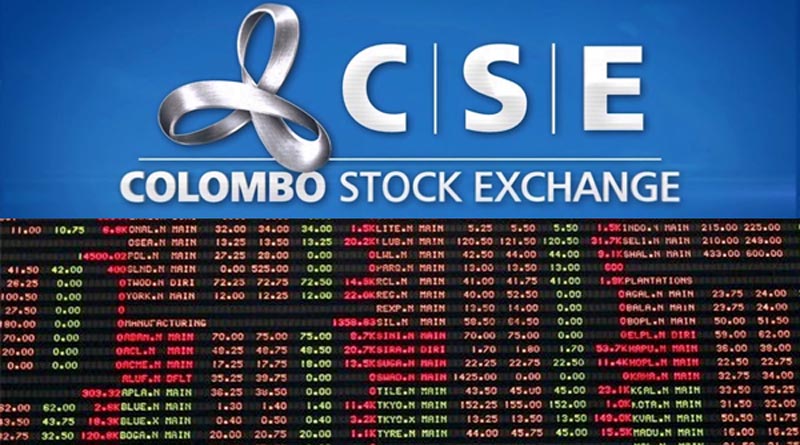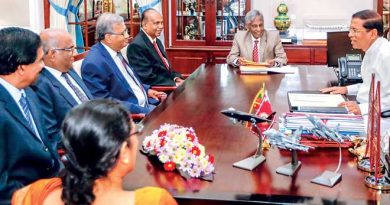SL targets MSCI Emerging Market status within 3 years: CSE
Sri Lanka wants to join the index provider’s benchmark Emerging Markets Index and has set a three-year timeframe to do so, according to Rajeeva Bandaranayake, Chief Executive of the Colombo Stock Exchange (CSE), in an interview with FinanceAsia.
Sri Lanka may rank as the smallest constituent of MSCI’s Frontier Markets Asia Index behind Vietnam and Bangladesh, but is a country with ambitions to stand alongside bigger rivals, the Report said.
In addition, Bandaranayake noted that only one Company (John Keells Holdings) has exceeded the $ one billion market capitalization criteria against a minimum of three companies needed to join the Emerging Market Index.
However, he said “That’s where the listing of state-owned enterprises and large private sector listings will come into play. So, part of the plan has to be attracting SOEs to the list. It’s a chicken and egg situation. If we get that size of companies onto the market then prices and valuations will rise and more private sector companies will see the value of listing”, Bandaranayake noted.
Answering a query on the CSE plan to improve access to foreign investors, he said. “We need to strengthen and make the whole account opening process a lot shorter as it can take a couple of weeks end-to-end. We’ve significantly shortened the timeframe at our end. Before the middle of last year, it probably took a couple of weeks and now it’s down to a couple of days. But we need to work with custodian banks to shorten the period at their end. It should be fairly straightforward as it’s a matter of sharing the ‘Know Your Customer’ (KYC) data. At the moment, it’s replicated across a number of different entities including the Central Bank and brokers. We also need to improve post-trade confirmation, which is still done manually. We want to initiate straight-through processing (STP) so that, everyone is connected. We are on Swift and so are the Banks. The next step is to get the brokers on as well and we’re working with Swift to come up with an affordable solution for them. Once that happens, we maybe able to shorten the settlement cycle from T+3 to T+2” , he added.
MSCI’s most recent release shows Sri Lanka now has a 6.62% weighting in the MSCI Frontier Markets Asia Index and does not even feature in the top six country weightings of its global Frontier Markets Index.
Under the previous regime, former president Mahinda Rajapaksa, the country’s Securities & Exchange Commission head, Nalaka Godahewa, confidently predicted Sri Lanka could achieve MSCI Emerging Markets status by 2015.
Today, the CSE has a market capitalisation of $18.96 billion and average daily trading volumes have halved from their $6 million level in late 2014. The equity market now represents just 22% of GDP.
The Report stated that after two difficult years, 2017 witnessed a turn around in the exchange’s fortunes. However, ironically, it was the MSCI’s decision to upgrade Pakistan to EM status, which boosted foreign portfolio inflows.
He also admitted that Sri Lanka benefited from remaining in frontier market. “Sometimes it’s better to be classified as a frontier market because it means a higher allocation of funds. Today, we’re competing against Vietnam and Bangladesh, whereas in the EM world we would be up against much bigger guys. So I think we’re in the right place at the right time. When Pakistan was recently upgraded, funds re-balanced and we benefited from that. ” He said,
“We’re aspiring to because we’ll automatically attract larger foreign fund flows But actually that’s almost a secondary consideration. Striving to get into the index automatically raises the bar because there are certain minimum criteria that have to be met covering governance, risk, liquidity and size, accessibility of foreign investment and exchange control regulations. This will help us to improve. In three years, we will be operating at a higher level than we are today.” He added
“We had record inflows last year in rupee terms: just over Rs110 billion ($707.3 million) compared to Rs70 billion in 2016. The difference was even more marked in terms of net flows: Rs17 billion compared to Rs300 million the year before. Funds also rotated to Sri Lanka because the market is relatively cheaper in P/E terms and is trading around 10 times current year earnings.” He further added.
Speaking of plans of listed companies to raise much needed capital to enter into emerging market index, he said “They will use multiple sources to raise capital. We are also looking at a multi-currency board so local companies can raise foreign capital. The Central Bank has agreed to it in principle and we’ve submitted the rules to the regulator. We should be able to activate it during the first half of the year. There are already a few companies, which have expressed interest in dual listings as well including one company in the Maldives.” FinanceAsia interviwed CSE CEO, Rajeeva Bandaranayake and here is a reply to a pertinent question.
What are you doing to improve technology and risk, another MSCI criterion?
A:”We’re moving to Delivery Versus Payment (DVP) in phase one and Central Counterparty Clearing (CCP) in phase two. We started CCP in 2014 but the next year, the Central Bank pulled out of the project, which would have established common clearing including government and corporate securities.We had to re-group and that set us back in terms of time. But we recommenced with a new two-phase plan”, he noted.
“We’re looking at a nine- to 12-month timeframe, so realistically it will be the first quarter of 2019 when phase one is fully operational. The broker community are now ready technologically. Their back office systems are in place. So too is the order routing system”, he added.
“We’re currently in the process of talking to brokers and custodian Banks about how to make our margining and custodian systems operational. Then we need to put the right IT in place for that. We’re most likely to upgrade our current system. Stock borrowing will come with DVP and then we’ll be able to introduce derivatives with CCP”, Bandaranayake said.




